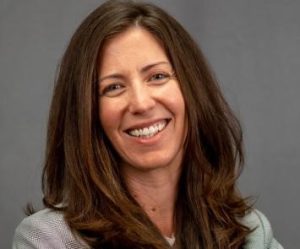Francesca Tripodi, co-researchers receive $750k NSF grant for research project on misinformation
False news is everywhere, and a professor at the University of North Carolina at Chapel Hill is exploring ways to help people sort through the swarm of bad information.
Francesca Tripodi, an assistant professor at the UNC School of Information and Library Science and a senior researcher at the Center for Information, Technology, and Public Life, joins experts in education, media literacy and instructional design to tackle “one of the most urgent problems in American life,” said lead investigator Justin Reich, an educational researcher at MIT: addressing misinformation.

Alongside Reich, Tripodi’s co-principal investigators include Stanford University professor Sam Wineburg, who studies how people judge the credibility of online content, and Michael Caulfield of the University of Washington where he directs rapid response efforts to misinformation.
The team has been awarded $750,000 from the National Science Foundation to adapt lessons learned about teaching information literacy in schools to help those considered the most vulnerable to misinformation campaigns, such as rural and indigenous communities with limited access to high-speed internet, military veterans, older adults and military families.
“Our goal is to take current media literacy interventions and adapt them to be more effective for communities who evaluate and trust information differently,” says Tripodi, a sociologist and media scholar.
Her research will help the team understand communities’ unique media literacy practices. Those practices include where people go for information, how they come to trust that information and how online activity influences information returned in search results.
The group is concerned with citizens’ skills in distinguishing truth from fiction as they use online information to make decisions about their personal lives and their communities.
Tripodi will lead the first phase of the study to test the ability for existing interventions to transfer to other communities. After working with rural and indigenous communities, then researchers will expand to address Black Americans, military families and veterans.
Partners in this phase will include the American Library Association and Humanities Montana, an established advocate for engaged citizenship that works primarily with libraries and cultural institutions.
The proven methods for teaching online fluency to secondary students and college students may benefit populations outside of the education system, researchers say.
“We need to make those approaches familiar and available to many more people, not just in schools, but in libraries, health care settings and anywhere people are trying to find accurate information online,” said Reich, professor of comparative media studies and director of the Teaching Systems Lab at MIT.
The National Science Foundation announced 28 groups as awardees of Convergence Accelerator grants with Reich’s team one of a dozen in the program’s “Trust and Authenticity in Communications” track.
The team’s work is expected to be complete in fall 2022.
Information from MIT was used in this announcement.
